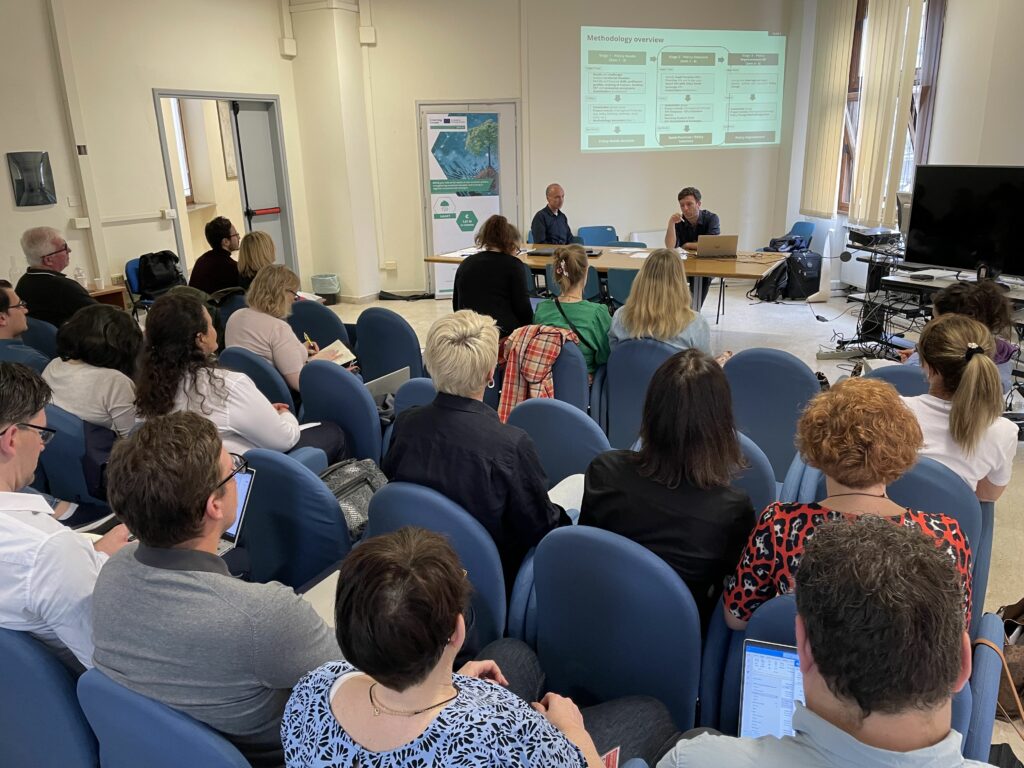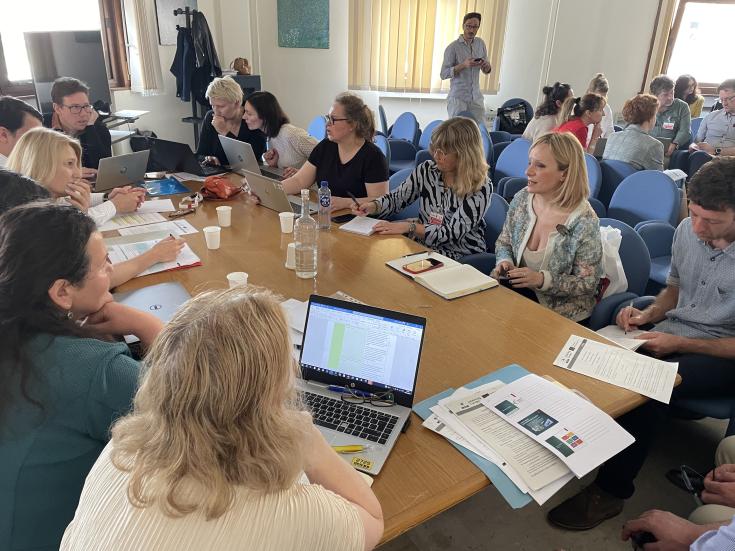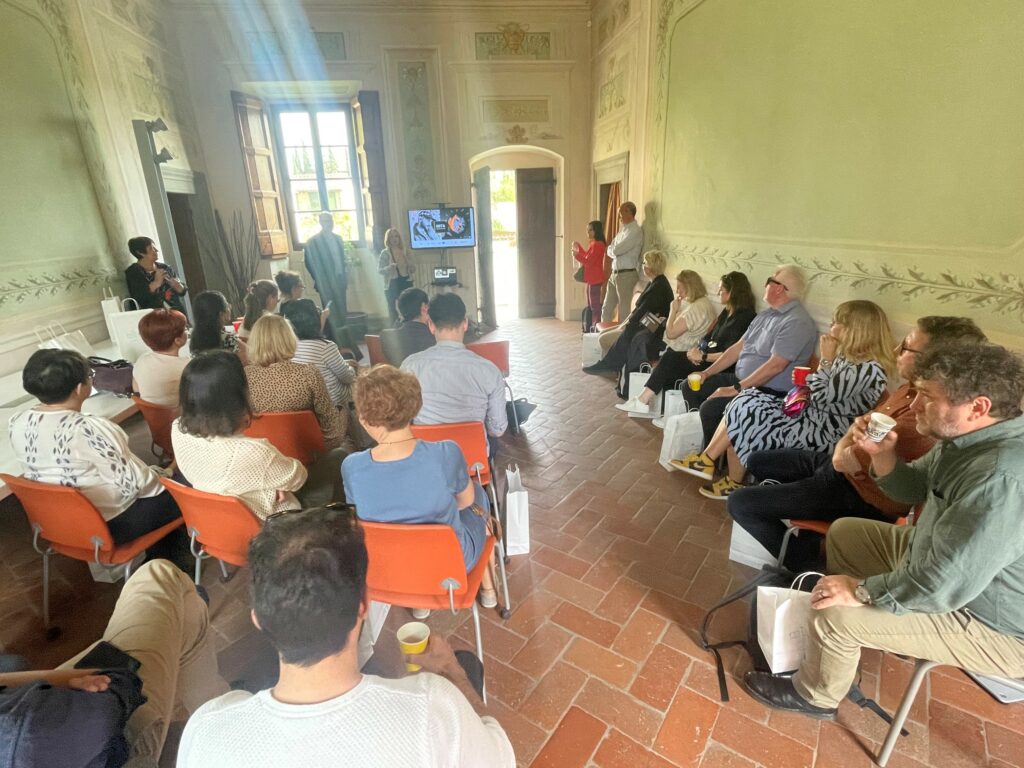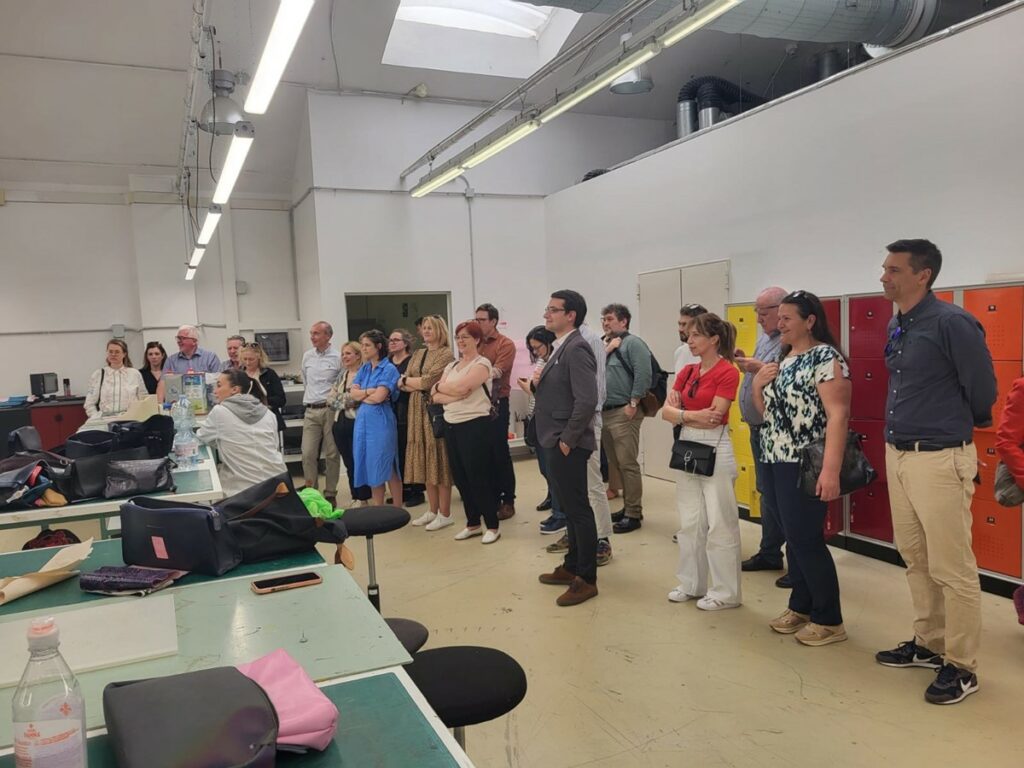SKYLA partners get to know the Tuscan model of ITS Academies
16/04/2024

SKYLA (Smart Specialisation Skills Ecosystems for the Twin Transition) partners met in person for the 3rd time from 9 to 10 April in Florence, Tuscany Region. They were invited to better understand the regional ITS Academy model and to exchange their policy solutions and needs. SKYLA is a SMART Interreg Europe project with 11 regional partners seeking to put VET at the centre of smart specialisation for the twin transition.
Miriana Bucalossi (Regional Government of Tuscany) welcomed the participants on behalf of the Region. She stressed the relevance of the Interreg Europe projects for their region as even if the skills of governance or public policies are different, cooperation and learning from each other are key to improving the territories’ policies for citizens.
The project is now entering its second year after a successful policy needs exchange between the regions involved, as explained by Lorenzo Sabatini (SKYLA’s lead partner ASEV – Agenzia per lo Sviluppo Empolese Valdelsa). In this first year, SKYLA partners dedicated their efforts to sharing their Policy Needs and to involve local stakeholders. Thanks to these inputs, the partnership better understands the skills challenges and needs faced by the other regions, as discussed during the second partners meeting in Dublin.
In this meeting, partners explored regional policy solutions in their territories and started matching them with their policy needs. To this end, two workshops were organised to exchange their Policy Solutions and Good Practices linking up to regional policy needs and considered possible ways to improve policy instruments, building on identified policy needs and solutions to address them. A Steering Committee meeting closed the meeting where partners discuss their impressions and have an overview of the communication and dissemination actions run by Advisory Partner EARLALL.


Getting to know the Tuscany ITS Academy model
Partners had the opportunity to learn and meet experts from the Tuscany Region who introduced regional and national tools that support the local skills ecosystems. Ms Alessandra Biancolini (Ministry of Labour – INAPP) introduced the National Jobs Act reform which established the “National Technical Body for Apprenticeship.” The body aims with the mission to harmonise professional standards (Apprenticeship) in the job collecting agreement and linking them in the standards, and regulatory framework of apprenticeships. From the national to the regional level Mr Gabriele Grondoni and Ms Miriana Bucalossi explained how the Tuscany region is Promoting apprenticeships and work-based learning and the challenges and opportunities of this reform, with Good Practices such as the Didacta Fair.
From the theory to the practice, partners dedicated part of the meeting to deep-dive into the concept of the Tuscany Region Good Practice ITS Academies which are part of the reform of higher technical institutes (ITS Academy). The ITS Academy focuses on strategic areas related to the ecological transition, the digital transition, national branding (‘Made in Italy’ – MITA) and specialised craftsmanship. The ITS Academies develop innovative training programmes strongly relevant to labour market needs in different sectors and territories. In particular, the ITS Academy Made in Italy Tuscany Academy (MITA) provides qualified and technological training in the fashion sector. MITA is structured as a foundation formed by private enterprises, training providers and public institutions.
Understanding the ITS Academy model



ITS MITA Academy is structured as a foundation formed by private enterprises, training providers and public institutions. SKYLA partners were introduced to the model by Mr Lorenzo Barbagli (MITA Academic Coordinator).The ITS MITA in fashion meets the region’s expectations to train future workers in the different textile companies established within Tuscany. The Academy connected with the industry and the region to understand better the needs for the next academic course. The Institution offers two-year training courses, based on the motto of “learning by doing”, in their courses practical training is essential. To get excellent practical training they rely on private companies, as 90% of their teachers are coming from the fashion industry. A second important element is the time dedicated to work-based learning, 800 hours of internships are foreseen in their programmes, which are offered to the students in the second year. The ITS MITA work placements results reveal the success of their model: on average more than 95% of their students find a job after their training. In ITS MITA it is finding a connection between public and private interest that results in a better training of workers which will improve the competitiveness of the Region.
SKYLA Partners were particularly interested in how the Academy is working towards a more sustainable fashion model. Mr Lorenzo Barbagli explained that sustainability is integrated transversally in all the areas of the Academy. On top of this, they are using no chemicals in their training labs and they are in constant contact with companies to work in that direction.




